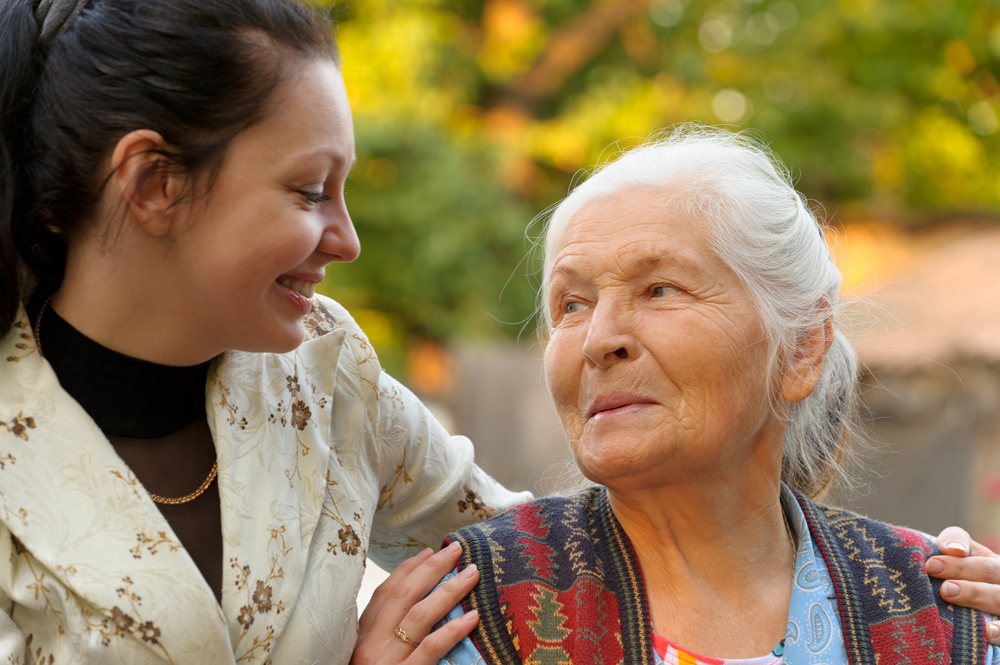Checklist for Moving Elderly Parents into Your Home
Category:

Moving elderly parents into your home can come with a unique set of challenges. Selling their home, helping them move, and making sure your home is accessible are just a few of the things you’ll need to consider when looking to assist seniors moving closer to family. In this post, we’ll help you make a checklist for moving elderly parents into your home and offer tips to avoid points of friction.
Moving Elderly Parents Out of Their Home
One of the more emotional challenges that come with moving elderly parents into your home, may stem from your parents having to leave their old home behind. Even if your senior is excited by the idea of moving closer to family, it may be hard to let go of a lifetime of memories associated with their previous home.
For others, it may be challenging to admit that they can no longer care for themselves, and see giving up their home as a sign of losing their independence. Taking the time to talk with your loved ones about any complicated feelings regarding the move may help them come to terms with some of these changes. If your aging parents are being difficult, do your best to remember that this change is going to be an adjustment for them too.
How to Prepare for an Elderly Parent Moving In
Before creating your moving checklist for seniors, there are a few tips to keep in mind that may help you minimize your work on moving day and beyond.
Be realistic about how much caretaking your parents need.
The first step towards successfully moving elderly parents into your home is properly assessing their care needs, and being realistic about how prepared you are to provide for them on your own. Will you be able to adequately meet their needs without compromising your own well-being?
Even if the answer is yes, be prepared for your aging parent’s needs to evolve over time and be ready to consider options like an assisted living facility or in-home care services.
Set boundaries and prioritize privacy.
Unless you plan to prepare a secondary suite for your elderly parents, you’ll be forced to share common areas like the kitchen, living room, and bathrooms. Have a conversation about expectations on both sides to reduce friction. Consider creating separate seating spaces for activities like watching TV or reading so your parents have the opportunity to do things on their own schedule.
Where possible, try to give your parents as much independence as they can safely handle. The longer they can remain autonomous, the better for both their mental health and yours.
Downsize.
Work with your parents ahead of time to downsize their belongings before they start moving them into your home. Seniors will likely have trouble letting go of items with emotional attachment or perceived value, but you have a finite amount of space for them to occupy and not everything can come with them.
Having tough discussions about letting go of things they no longer need will save you a lot of conflict later on. If possible, have them categorize items into essential items, things to be sold or donated, and things to be thrown away. Don’t entertain the idea of putting items into storage or making decisions about what to keep later.
Start sooner than later.
Moving always takes longer than you think it will — taking care of as much as you can in advance before it’s time to sell their home and move them into your home is setting you and your family up for success.
Download Our FREE Path to Care Guide
Senior Moving Checklist
Once you’ve laid down the groundwork, follow our checklist for moving elderly parents:
- Choose a moving company.
- Help your parents downsize their belongings and create a realistic floor plan for their new space.
- Set a date for the move.
- Make a floor plan for their new living space which includes information like placement of doors, windows, and any other fixtures that can’t be moved. This will let you know exactly how much space your parents have to fill, and what needs to be sold, donated, or thrown away before they can fit into their new space.
- Make any necessary accessibility accommodations to ensure safety and comfort.
- If they have any pets, have a plan for how they will be safely relocated and that any necessary accommodations have been made in advance.
- Cancel any services or utilities from their previous home.
- Refill any necessary prescriptions and have medical records transferred to a local physician if necessary.
- Complete an address change with the post office and forward any important mail. This includes things like credit card statements, medicare and social security, magazine subscriptions, voter’s registration, and more.
To learn more about our home care services, contact our caregiving team today at 1-800-GRISWOLD or find a Caregiver near you.
Subscribe
Date: 2024-07-30
Category:


